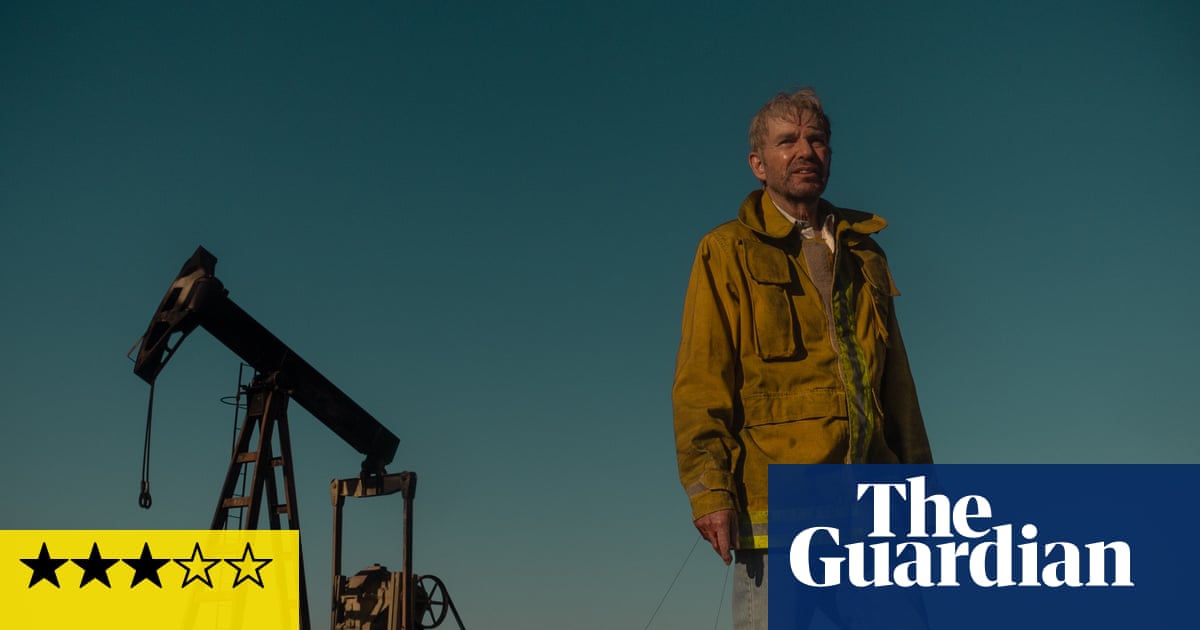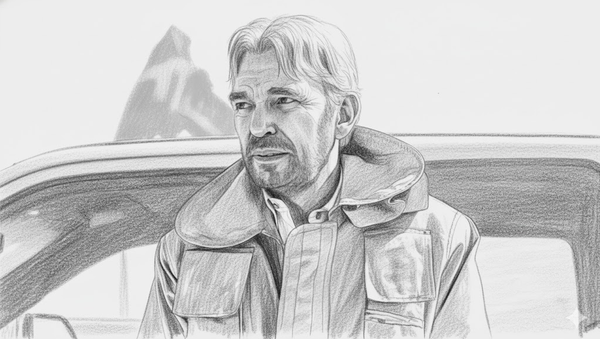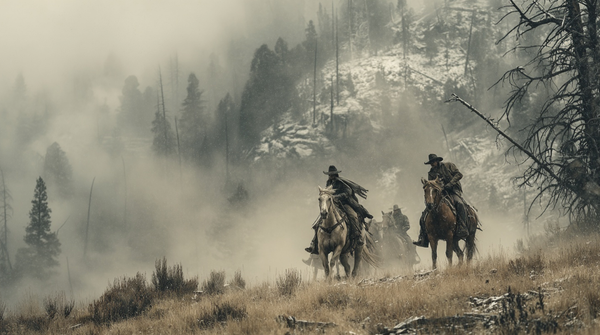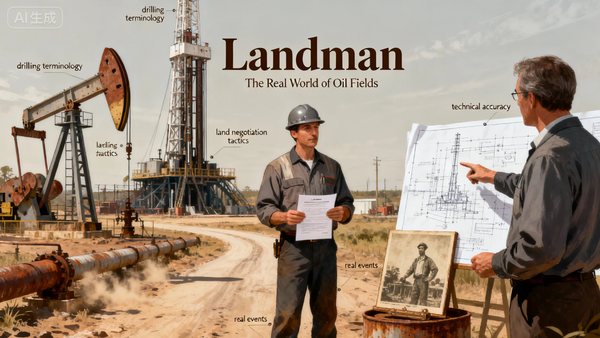Landman Season 2: What Should European Audiences Expect?

When The Times called Taylor Sheridan's Landman "a portrait of Trump's America," the characterization wasn't mere provocation—it captured something essential about how European viewers experience the series. Premiering across UK and European Paramount+ platforms last November, the West Texas oil drama landed with all the subtlety of a fracking rig punching through shale, delivering a vision of American capitalism, masculinity, and resource extraction that feels simultaneously alien and grimly familiar to audiences across the Atlantic.
Now, with Season 2 set to premiere globally on November 16, 2025, European viewers face a crucial question: Will the show that sparked fierce debate about gender representation, energy misinformation, and the mythology of American exceptionalism evolve—or double down on what made it both compulsively watchable and deeply controversial?
The Cultural Chasm
For European audiences, Landman exists in a peculiar space. The UK's Guardian praised Billy Bob Thornton's performance while finding the show's treatment of women "repellent." Germany's energy transition—the Energiewende—provides a stark counterpoint to the series' oil-patch bravado. French viewers accustomed to state intervention in energy markets watch M-Tex's cowboy capitalism with bewilderment. The show doesn't just depict an industry; it presents an entire worldview that runs counter to much of European social democracy.

Season 2 arrives at a moment when this cultural distance has sharpened. Europe's aggressive renewable energy targets make the show's fossil fuel romanticism feel not just dated but actively oppositional. Yet that's precisely what gives Landman its anthropological fascination for European viewers—it's a window into the American id, unfiltered and unapologetic.
What We Know About Season 2
Production wrapped in the Fort Worth area this past August, marking one of the fastest turnarounds for a prestige drama. The speed signals Paramount+'s confidence: Season 1 delivered 35 million global viewers, making it the platform's most successful original series. The network clearly wants to capitalize on momentum while Sheridan's particular brand of neo-Western storytelling dominates the streaming landscape.
The Season 1 finale left multiple threads dangling. Tommy Norris (Thornton) stands at a crossroads, his role as M-Tex's crisis fixer complicated by Monty Miller's (Jon Hamm) precarious position. The cartel subplot—one of the show's more Hollywood embellishments absent from the source podcast—threatens to escalate. Cooper's (Jacob Lofland) roughneck education has barely begun. And the persistent question of whether the show can write women as anything beyond caricatures hangs over every female character.
Early Season 2 details suggest Tommy will transition from field operative to something resembling an executive role—a shift that could fundamentally alter the show's texture. Much of Season 1's propulsive energy came from Thornton's character ricocheting between crisis points, deploying his sardonic wit while navigating rig disasters, cartel negotiations, and family chaos. Elevating him to the C-suite risks losing that kinetic quality, though it opens narrative possibilities around corporate corruption and the moral compromises of upward mobility.
The Sam Elliott Factor
The addition of Sam Elliott to the Season 2 cast represents more than star power—it's a statement of intent. Elliott, whose gravelly voice and weathered face embody the mythological American West, brings instant gravitas to any production. His presence suggests Sheridan intends to lean further into the frontier mythology that critics argue the show already indulges too freely.
For European audiences, Elliott's casting offers a useful lens. Unlike Thornton's Tommy—a middle-management figure whose compromises and frustrations make him recognizable across cultures—Elliott typically plays archetypal figures: the Old West lawman, the ranch patriarch, the voice of rugged individualism. His arrival likely signals the show will further explore the generational tensions within the oil industry, pitting older extraction philosophies against emerging realities.
This could prove fascinating or tedious, depending on execution. Will Elliott's character represent a cautionary tale about clinging to dying industries? Or will he deliver more romanticized speeches about American energy independence that ignore climate science? European viewers, watching from societies that have largely accepted the necessity of energy transition, will likely receive these storylines with more skepticism than the show's American core audience.
The Gender Question
No discussion of Season 2 expectations can avoid the elephant in the room: Landman's troubled relationship with its female characters. Season 1 drew sustained criticism across the Atlantic for reducing women to one-dimensional archetypes—the hypersexualized ex-wife Angela (Ali Larter), the bikini-clad daughter Ainsley (Michelle Randolph), the underutilized Cami Miller (Demi Moore).
Larter's public defense of her character—"objectify me," she told People, arguing Angela possesses agency and complexity—hasn't quieted critics who point to how the camera leers and how dialogue reduces women to sexual objects. European reviews were particularly harsh on this dimension, with the Guardian's assessment ("if only its attitude to women wasn't so repellent") capturing a consensus view.
Season 2 faces pressure to evolve. Early production notes suggest expanded roles for female characters, particularly Cami Miller, whose Season 1 presence felt like squandered potential. Demi Moore, still commanding attention after her The Substance comeback, deserves material worthy of her talents. Whether Sheridan and co-creator Christian Wallace can write women with the same dimensionality they afford Tommy Norris remains the show's biggest creative challenge.
For European audiences, this isn't merely about political correctness—it's about storytelling credibility. European television has increasingly embraced complex female protagonists, from Borgen to Killing Eve to Deutschland 83. Landman's reductive gender politics feel not just objectionable but artistically impoverished, a failure of imagination that limits the show's potential.
The Misinformation Problem
One of Season 1's most viral moments—Tommy's wind turbine monologue claiming renewable energy could never offset its carbon footprint—became a flashpoint in European discourse. The speech, demonstrably false according to peer-reviewed research, found eager amplification in right-wing media circles while drawing fact-checks from outlets including Newsweek.
European viewers, living in countries where wind power supplies significant portions of the grid (Denmark at nearly 50%, Scotland exceeding 90% on windy days), watched this scene with particular incredulity. The disconnect between Tommy's confident assertions and observable European energy reality highlighted how Landman serves a specific ideological project: defending fossil fuel extraction against climate-motivated criticism.
Season 2's approach to energy politics will be telling. Will the show acknowledge renewable energy's demonstrated viability? Will it present solar and wind as legitimate competitors rather than pie-in-the-sky fantasies? Or will it continue giving characters—and by extension, the narrative itself—the last word on energy policy questions where they're factually wrong?
This matters because Landman doesn't present itself as pure fantasy. Co-creator Wallace emphasizes the show's grounding in real Permian Basin stories, sourced from his Boomtown podcast. The show trades on authenticity, consulting with Texas Tech petroleum experts and recreating actual industry practices. When it pivots to energy policy misinformation, it exploits that credibility to launder dubious claims.
European audiences, whose societies have largely moved past climate change denial as a mainstream position, may find Season 2's energy politics increasingly alienating—or darkly fascinating as a document of American petro-state psychology.
Plot Expectations and Character Arcs
Beyond controversies, what narrative developments should European viewers anticipate?
Tommy's Corporate Ascent: The transition from fixer to executive promises Shakespearean dimensions. Tommy has built his identity around problem-solving at ground level, maintaining human connections with roughnecks while navigating corporate demands. Elevation to the boardroom risks severing those connections, forcing choices between loyalty and advancement. Thornton excels at portraying moral exhaustion; watching Tommy grapple with corporate ethics could yield the show's most compelling material.
The Cartel Storyline: Season 1's cartel subplot felt like the show's least organic element, imported from generic crime drama rather than organic to the oil patch. Yet it established stakes that demand resolution. European viewers, accustomed to American entertainment's frequent vilification of Latin American characters, will watch carefully for whether Season 2 handles this storyline with nuance or defaults to stereotype.
Cooper's Education: The show's strongest father-son dynamic involves Tommy and Cooper, though it's largely backgrounded behind more sensational plot elements. Cooper's roughneck apprenticeship offers a genuine coming-of-age narrative, exploring how dangerous labor shapes masculine identity. European audiences may find this the most relatable element, as questions about working-class opportunity and dignity transcend borders.
The Women: Beyond general skepticism about whether the show can improve its female characterization, specific questions loom. Will Ainsley develop beyond sex object? Will Angela's agency—so passionately defended by Larter—manifest in actual plot decisions rather than just attitude? Will Cami Miller become a true player in M-Tex's power dynamics?
The Sheridan Universe Context
Landman doesn't exist in isolation. For European viewers, it's part of the Taylor Sheridan Extended Universe, which includes Yellowstone, 1883, 1923, Tulsa King, and Mayor of Kingstown. This interconnected body of work presents a consistent worldview: skepticism of government and institutions, valorization of frontier justice, fascination with American violence, and deep ambivalence about modernity's costs.
European critics have noted how Sheridan's universe romanticizes American exceptionalism while occasionally puncturing its myths. Landman tilts heavily toward romance, giving oil executives and roughnecks heroic treatment while presenting environmental concerns as naive interference with necessary work.
Season 2's positioning within this universe matters. As Yellowstone concludes its run, Landman becomes Sheridan's new flagship. Will it embrace that responsibility by deepening its themes? Or will it chase Yellowstone's populist success by amplifying what already works for American audiences, even if that alienates international viewers?
The Viewing Experience Across Cultures
Here's what European audiences should genuinely expect: cognitive dissonance. Landman will continue offering propulsive entertainment—Thornton's performance alone justifies the viewing—while presenting value systems that clash with European social democracy. The show will showcase American capitalism's raw energy alongside its brutality, its opportunity alongside its exploitation.
You'll likely find yourself simultaneously drawn to the storytelling and repelled by the ideology. That's not a bug; it's the feature. Landman works because it commits fully to its perspective, refusing to apologize for depicting a world where money, power, and resource extraction drive every decision.
For European viewers, the show functions as a kind of immersive journalism, offering insight into how a significant segment of American society views energy, labor, gender, and power. It's valuable precisely because it's unfiltered, even when—especially when—that filter would improve moral clarity.
The November 16 Premiere
When Season 2 drops globally on November 16, European audiences will join millions worldwide in returning to the Permian Basin. The show has earned its audience through sheer watchability—even critics who savage its politics admit they kept watching. Thornton's performance transcends the material, finding humanity in Tommy's exhaustion and cynicism.
What you should expect: more of what made Season 1 successful, with marginal evolution at best. Sheridan has never been responsive to criticism in ways that fundamentally alter his artistic vision. He builds worlds that serve specific ideological purposes, then crafts compelling characters to inhabit them.
For European audiences, that means accepting Landman for what it is: excellent craft in service of a worldview you may find troubling. It's peak television in purely technical terms—acting, cinematography, pacing—wrapped around energy politics and gender representation that feel retrograde.
The question isn't whether Season 2 will challenge you. It will. The question is whether you're willing to engage with that challenge, to watch critically while remaining open to what the show does well. European viewers have much to gain from that engagement—not despite the show's American exceptionalism, but because of it.
Landman offers a window into the American id at a moment of profound global transition. Season 2 promises to keep that window wide open, whether we like the view or not.
Landman Season 2 premieres November 16, 2025, on Paramount+ in the UK, Europe, Australia, Canada, and the US.




